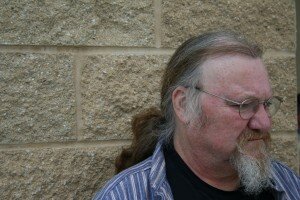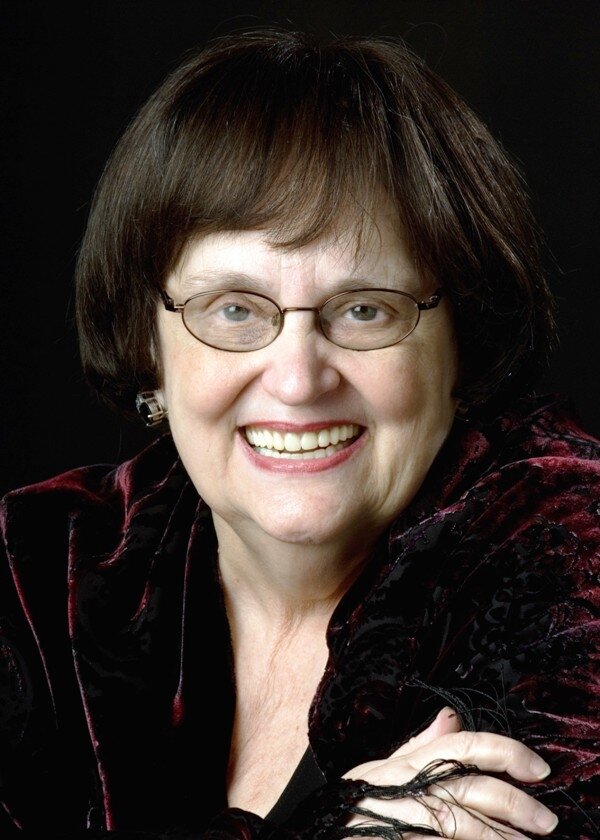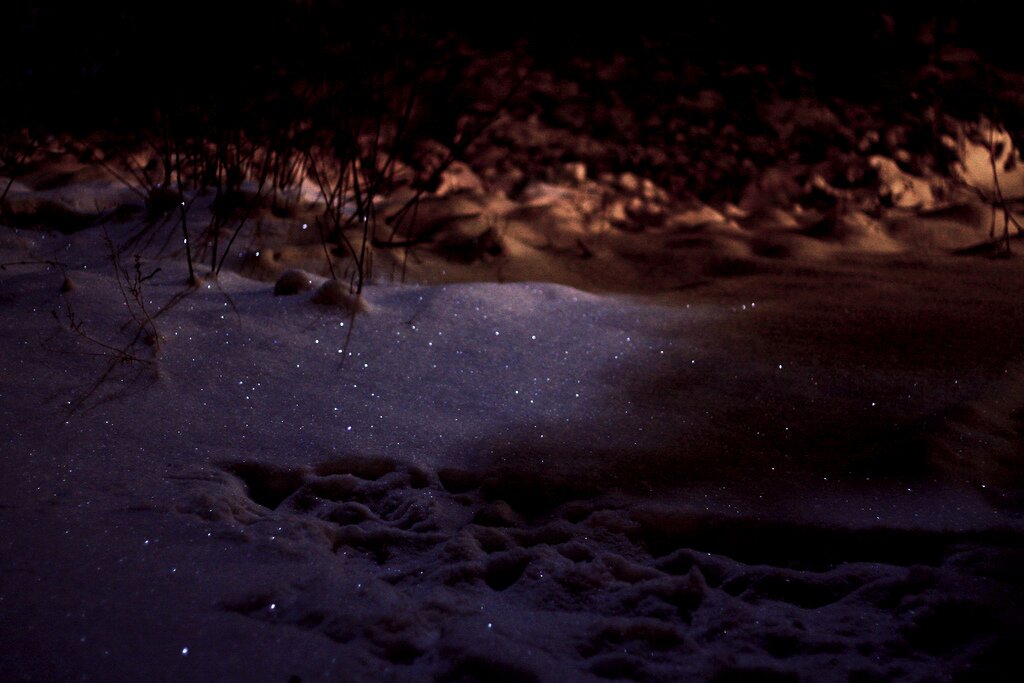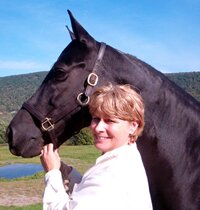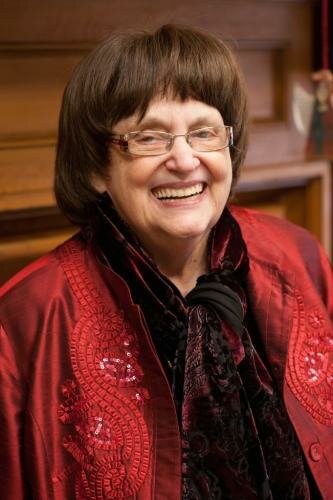Maria, thanks for agreeing to this interview. I wanted to start by discussing your book Writing Poetry to Save Your Life, particularly the idea of “personal poetry.” Could you start by explaining what your vision of that is?
My vision of poetry is that it should be based on some essential truth about what it means to be human and I think narrative poetry gets at those truths more directly and effectively than many other types of poetry. I want to give people permission to tell their own stories and to look at the world unflinchingly through the their own eyes rather than worrying about what critics or literary theorists say about writing. Like Faulkner, I believe literature is about the truths of the human heart and not about intellectual analysis. I trust the old lady who lives in my belly more than I trust intellect when writing a poem, and I encourage my students to go to that deep place inside themselves that I call the cave. I want them to get rid of the crow who sits on their shoulders and tells them everything that is wrong with them because that’s the critic that will keep them from writing. I believe in poetry that tells a story. I want poetry to make me cry or laugh; I want it to make the hair on my arms stand up. I want to remember it. I want to carry it with me for years after I’ve read it or heard it. For me, writing narrative poetry was very liberating. I started by imitating the work of other poets, but I realized, finally, that I was not an English Romantic poet, but rather that I could look around me and be a poet of the things I know. I know my father; I know 17th street in Paterson, NJ; I know Public School No. 18; I know what it means to be a wife, a mother, a daughter, a granddaughter, a child of immigrants who did not speak English until she went to school. I know about grief and loss, the grief over the loss of individual people in my family but also grief for war, grief for what we’re doing to the environment. If you can’t get rid of the crow who sits on your shoulders, you’re not going to write anything that will touch another person. One of the things I see in Allen Ginsberg’s work is his willingness to fight his own demons—his mother’s madness, his own fears, accusations against him for this poem Howl. He talks about that in the film Howl. He said he had to learn about everything. He ends up saying that everything is holy. If you are willing to go to all the places that maybe you’re ashamed of, and really look at them, you can make them blessed, you can raise them up, you can give courage to others just as Allen did. Literature provides window in someone else’s life and give us the connection between the writer and the reader. It forms a bridge between reader and writer. In writing narrative poetry, I think we learn about our own humanity. The writers I admire are ones who are afraid but go ahead anyway—Marie Howe, Mark Doty, Joe Weil, Jan Beatty, to name just a few of the great writers creating memorable work today.
Maria, what you say reminds me of something I heard the Canadian actor RH Thompson say once. He said that all theater training is essentially designed to get actors to return to their natural baby voice. Pointing out that babies can scream for days but never go hoarse, Thompson explained that humans have a natural knowledge of how to use their voice, how to speak loudly and clearly; at some point, though, he said someone turns to us and says “shut up” and we begin to feel our voice is a kind of vulnerability: we tighten our jaws and begin to speak from ‘the wrong place,’ to use our “inside voices” as we were so often instructed to as children. Actors must go backwards, Thompson said, and recover a place where their voice was actually them and not simply their voice. Would you say that this example is analogous to what you’re saying?
Yes, very much so. I think it is unfortunate that so much of our education trains us to subdue all that is wild and primitive and honest inside ourselves and in our writing. I think that we have to be willing to let go, to ignore our intellect and allow instinct to take over. In revision, we can use our intellects, but in writing the poem we need to believe that this instinctive voice knows what we need to write and as soon as we look that very middle-class,suburban inside voice, we lose the energy and vitality in our work. Even in revision, we have to be careful, to prune the work with delicate hands. We have to believe that our voices and stories are important and need to be heard. Did Whitman play it safe? Ginsberg? Anne Sexton? Adrienne Rich? No, they didn’t and that’s why people remember their work. Playing it safe is for accountants and not poets. Poetry needs the energy that only specificity and truth can provide.
While reading the book, I was struck by your focus on encouraging everyone to write. It’s a very democratic vision in that sense. That’s what I meant by radical because, as you’ve observed, many regard poetry as something for the academically minded. The book was very much like a portable version of the classic Maria Gillan workshop. I’m sad to say that I never had a chance to take a full class with you, but I did sit in on some of your weekend workshops, which were unlike most I’ve been involved in. I always felt that writing in that environment almost involved an act of faith. I have always been moved by how much faith you put in the very process of writing. In fact, you explicitly state that your book is about ‘process’ and not ‘craft.’
I think I did not make myself clear. Maybe an example will help. I was raised in a lower-class immigrant household where there were a lot of voices raised in argument and laughter. No one spoke of an inside voice. It would have seemed strange and unnatural to us. But when I was raising my children in a middle-class suburban environment, my own children pointed out that I often did not use my “inside” voice, indicating that I was too loud and boisterous and embarrassing. When I was growing up, I used to think that I would be truly happy if I could live in a middle-class community and raise my children there. My life was safer, more comfortable, but I felt that I lost some of the energy that was in my childhood home and that I had not been able to give my children the feeling of what that was like. I don’t want to play it safe anymore. I don’t want people to be lulled or put to sleep by my poems or any poems. I don’t expect contemporary poets to be bards, but in a way, I think they have to be able to communicate to people, not just to academics or other poets, and they should be able to read a poem so their reading helps to put the poem across. there are many writers and academics who will disagree with me and who will be angry with me. I don’t call my poetry confessional because it isn’t and because I think it’s a way that the academy has found of putting narrative poets, particularly women poets, down for not writing poetry that is so obscure that only an academic poet would understand it. That/s not a radical idea or a new one. I edit a journal, and have done so for 33 years. I am the only editor and I choose poems and stories and memoir based on my ideas about writing. I’ve organized a reading series for 33 years also, and again I choose the poets who are capable of reaching people of all types and classes. I am not interested in work that uses language as a screen and I don’t feature that kind of poet. I think my audience likes my poetic taste and they return month after month, year after year, to celebrate poetry that is rooted to the ground, poetry that celebrates ordinary life. I think that there is resurgence of narrative poetry because in this mechanistic world , people need and want meaning. I think of Shakespeare whose plays have survived because he wrote for both the elite and the people in the pit. I think that’s why we are still drawn to his plays even today so many years since they were written and performed.
This was another thing that struck me about your book: you insist that poetry is the work of the inner life, and your focus on everyone’s ability to engage in the process of poetry (or other art) as a result of the inner life. You affirm that everyone’s inner life matters and that it is their right–perhaps even their duty!–to cultivate their inner life. I respond to that because I did not come to poetry as an elite art that I aspired to in a class sense, but as something that broke through to my inner being in spite of these distractions. I guess I’m really interested, biographically speaking, in hearing about what led to this breakthrough. You spoke about wanting–for a time–to raise your kids in that middle class safety, and later rejecting that safety in order to speak in a “clear and direct and specific” way. What was happening in your life that led to this?
Micah, I hope the book is like carrying Maria in your pocket. I truly believe in the writing process and I believe that people become better writers if they believe in themselves and the value of their own lives and stories. For me, poetry is a way of saving myself and others, so I guess I’m like a preacher, only I’m preaching poetry and not religion. (Of course, religion and poetry are not mutually exclusive, but poetry has been so important to me and I love it so much that I can’t imagine living without it, and so I want to share it the way a preacher wants to share loving God. I also am very opposed to the idea that poetry is an elite art written by upper class people for other upper class people. I want my poetry to be clear and direct and specific; I want to be able to reach anyone who reads or hears it. I remember once reading an article in the NY Times Magazine many years ago, and in it, the person who was then the President of the Academy of American Poets was quoted as saying something like “Poetry has always been an elite art; it will never have a large audience and it shouldn’t.” I went apoplectic when I read that statement (I’ve paraphrased it, but that was the gist of it, I think I want to be like the wandering minstrels who went from town to town reciting their poems and stories). I try to encourage my students to believe in themselves and to think of the audience for their poems, to think of that audience as much larger than the audience of 5 white guys from Harvard.
You have defined “personal poetry” over and against “confessional” poetry, which you feel has been used dismissively by critics, so I think it’s interesting that you bring class into this discussion. Generally, we think of the poetry community as a very progressive community, but you seem to want a more radical vision: creating a nation of writers, of bards. Was this always your vision or did you come to it over time?
I started publishing poems when I was thirteen, but it wasn’t until I was 40 that my first book of poems was published. I had gone to graduate school when my children were in high school, and one of my graduate school professors said to me, It”s in this poem about your father that you find the story you have to tell. He gave me courage, made me feel that someone might be interested in reading poems by a working-class woman who did not speak English when she went to school, poems by a wife, a mother, a daughter, a granddaughter, an Italian American so my poems became more rooted in place,memory, and narrative. This was 1980; my first book publication coincided with my starting the Poetry Center at Passaic County Community College in Paterson, NJ in 1980. I also was and still am the editor of the Paterson Literary Review. As my own work began to gain critical attention, my own self-confidence grew and I was willing to take bigger and bigger risks in my writing. There’s something about shutting the crow up that is very freeing. At this point, I believe that what I’m doing in my work is what I need to be doing; and I want my students to believe in themselves and their work in the same way. Prior to my 40th birthday, I was teaching as adjunct in various colleges and trying to be supermom. The more I went out into the world, the more I read my poetry in public, the more students I taught, a big change came over me. Somewhere along the way I stopped being that introverted, bookish, shy little girl I had always been, and I discovered that I could make things happen both in my work and in creating programs. Everything we do ends up feeding our courage.
Speaking of risks, allow me to risk a characterization of your new book of poems The Place I Call Home. I have read a number of your books, and yet this book seemed different to my sense. While still being rooted in your life, these poems seemed more expansive in their scope, their claims. Would you agree?
Yes, I do agree. My grief over my husband’s long illness and subsequent death, led me to a wider examination of grief to include my grief for the way we have managed to destroy so much of the natural world and even the world of human connection. My book The Silence in the Empty House (NYQ books) deals with these issues even more specifically. I have another book called Ancestor’s Song (Bordighera, CUNY) which ties together many of the themes of my earlier books with the new direction that my work is taking. What I advise my students to do is to let go. I do believe that a force wiser than we are guides our writing. It’s fun to be exploring new territory even after all these years, and I’m happy to find that my production of work has not slowed down; if anything, I feel more prolific than ever.


